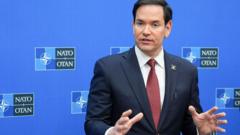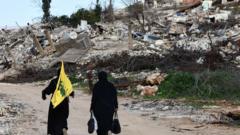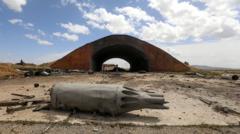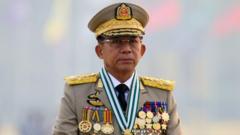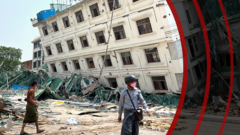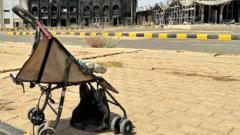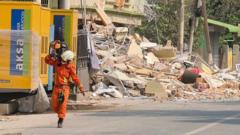The caretaker government in Syria, led by Hayat Tahrir al-Sham, is confronted with the daunting task of addressing more than 100 suspected chemical weapons sites remaining after the civil war, posing risks of unsecured stocks of dangerous substances.
New Government Faces Challenge with Chemical Weapons Stockpiles in Syria

New Government Faces Challenge with Chemical Weapons Stockpiles in Syria
As Syria transitions under a new government, over 100 potential chemical weapons sites present a dire security threat.
More than a year after the fall of Bashar al-Assad's regime, a new report from the Organization for the Prohibition of Chemical Weapons (OPCW) reveals there are over 100 potential chemical weapons sites scattered across Syria. This number significantly surpasses previous estimates and underscores a critical challenge for the newly established government. These sites are believed to be connected to the historical research, production, and storage of chemical munitions used by Assad during the grueling civil war, which lasted over a decade.
The OPCW’s findings paint a troubling picture of the current security landscape, as the caretaker government, led by Hayat Tahrir al-Sham—a group designated as a terrorist organization by the U.S.—is pressured to manage these hazardous remnants of warfare. Chemical agents, including nerve agents such as sarin and chlorine gas, were infamously employed against both insurgent forces and civilians throughout the conflict.
As the world watches Syria's precarious stability, the presence of these weapons exacerbates the urgency for the government to ascertain the status of these sites. Experts express heightened fears about the implications of unsecured chemical munitions in densely populated regions. Sarin, for instance, poses an immediate lethality, while chlorine and mustard gas inflict devastating injuries that can lead to suffocation and agony.
The path forward is fraught with uncertainties, with the new government tasked not only with the immediate security concerns posed by the chemical stockpiles but also with navigating the complex geopolitical ramifications of its leadership's links to prior terrorist affiliations. The stakes for Syria and its citizens remain alarmingly high as the international community watches to see if this newest administration can bring about a more secure and peaceful future.

